Many reef fish are toxic, that is they contain strong toxins in their bodies. There is however a difference between a poisonous fish and a venomous fish.
Both types of fish contain strong toxins, but the difference is in the way the toxin is delivered.
Venomous fish deliver their toxins (called venom) by stinging or stabbing. Venomous fish don’t necessarily cause poisoning if they are eaten, since the venom is often destroyed by our clever digestive system.
By contrast, poisonous fish contain strong toxins, which are not destroyed by the digestive system, making them poisonous to eat.
Here in Fiji, we have some of both, that as a fisher[ahem!]-person, you should be aware of.
Pufferfish / Balloonfish / Blowfish)
Poisonous
These guys are generally believed to be the second most poisonous vertebrates in the world, (FYI, the first is the golden dart frog, the poison from which is used by the Choco Emberà people in the darts they use to hunt for food in Colombia’s rainforest!).
Some Asian countries, such as Japan and China (where they refer to it as ‘Fugu’), and Korea (bokeo), view the puffer fish as an exquisite delicacy. In the hands of an expert chef, this fish can provide a harmless, yet delicious meal, but one wrong slice in the preparation process, and instead, you could be enjoying a paralytic coma that will kill you within a few minutes!
Between species, the toxin level varies wildly, and while a puffer’s neurotoxin is not necessarily as toxic to other animals as it is to humans, it only takes a few milligrams of puffer fish poison to kill a full-grown man!
Because of the high levels of toxicity, and the high chance of death if not prepared properly, Fugu is the only dish that the Japanese Emperor is forbidden to eat. So, even if you are not the Emperor of Japan, unless you are a qualified chef with many years of experience in Fugu preparation – probably best to avoid eating this fish!
Rabbitfish
Venomous
These delicious little reef fish have an unusual feature in that their pelvic fins, are formed from two spines, their dorsal fin has 13 spines, and the anal fins have 7 spines. All of these fin spines are equipped with welldeveloped venom glands!
So be careful when handling these fish as getting spiked can be quite painful and if not treated properly, can sometimes result in an infected wound.
The spines have been known to break off inside a finger (like a rather large splinter) and become infected, so do take care.
Lionfish
Venomous
When Hurricane Andrew hit Florida in 1992, no one gave much thought to the six exotic lionfish that spilt into Biscayne Bay as the storm smashed their Miami waterfront aquarium.
Sixteen years later, thousands of their descendants are now wreaking havoc off America’s east coast, leading a marine invasion. The highly poisonous hunter-killer, which is normally found in the Pacific and Indian Oceans, is the first known non-native fish to establish itself in the Atlantic, where it has been eating its way through other species faster than they can breed.
So while the Lionfish has been a common table food in parts of the world where they exist naturally, in recent years, campaigns have begun in areas along southeastern U.S. and the Caribbean that encourage folk to eat these ornate little fella’s in an attempt to get them off the reefs.
As for the toxins, they are contained solely within the fish’s spines, the venom remains active for up to an hour after the fish has died, so be cautious when handling and preparing the fish. Once the spines are removed, the flesh is quite safe to eat.
*Although you may have been encouraged to catch and eat this species in other coral reef areas, we here in Fiji quite like our native lionfish to stay on the reefs for our visiting divers and snorkelers to enjoy.
Stonefish
Venomous
One of the most venomous fish known in the world. Stonefish is commonly served as sushi called Okoze in Japan but can also be eaten boiled, or deep-fried.
Since many people like to prepare and eat Japanese food, it is important to know that cutting a stonefish for cooking carries the risk of ‘envenomation’ (that is, being spiked and poisoned to you and me). Even top chefs have been known to spike themselves while preparing this dish!
So unless you are a qualified and highly experienced sushi chef, it would be wise to throw this little sucker back in (extremely carefully, with gloves, and perhaps some chainlink around your fingers, and maybe even using a stick – just to be safe!!!).
Scorpionfish
Venomous
A single prick from one of this fish’s spines can render a whole new level of pain and infection if not properly taken care of. But just because there is a chance of getting stung, as with the lionfish, you should not be afraid to handle one of these guys – just be VERY cautious.
Firstly (and only once the fish is dead of course!) you should cut off the dorsal spines from front to back; secondly remove the fish’s anal and dorsal fins on each side, and then remove the anal spines.
Once removed, you can continue filleting the fish as you would any other!
Ciguatera (sig-wa-ter-ra) AKA Fish poisoning
Symptoms, which usually begin 15 to 30 minutes after eating the contaminated fish, include abdominal pain, joint pain, tingling in the fingers, nausea, vomiting, diarrhea, tongue and throat numbness, tooth pain, difficulty in walking, blurred vision, skin rash, itching, weakness, twitching muscles and occasional difficulty in breathing.
A classic sign of ciguatera intoxication, is the reversal of hot and cold sensations (hot liquids seem cold, and vice versa). A very unlucky person can become severely ill shortly after they are poisoned, with heart problems, low blood pressure, deficiencies of the central and peripheral nervous systems, and collapse.
Unfortunately, many of the debilitating, but not life-threatening, symptoms may persist in varying severity for weeks, months or sometimes even years. After the initial poisoning, a person is forever hypersensitive to the toxin.
Treatment is for the most part based upon symptoms; prochlorperazine can be useful for vomiting; hydroxyzine or cool showers may be useful for itching. There is not yet a specific antidote.
If a person displays symptoms of ciguatera fish poisoning, he/she should see a medical professional as soon as possible. It is important that during recovery from ciguatera poisoning, the affected person should exclude the following from their diet: fish, fish sauces, shellfish, shellfish sauces, alcoholic beverages, nuts and nut oils.
by Heidi Williams
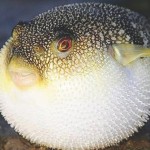
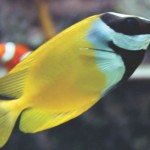
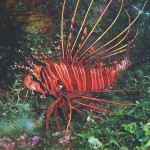
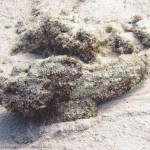
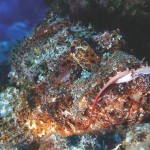
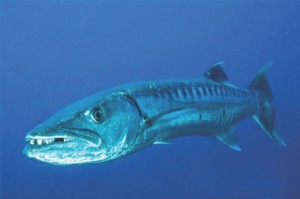
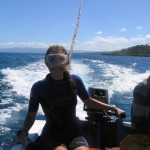
Leave a Reply